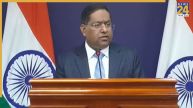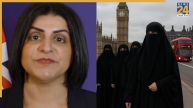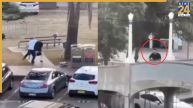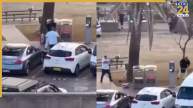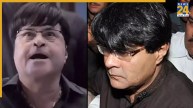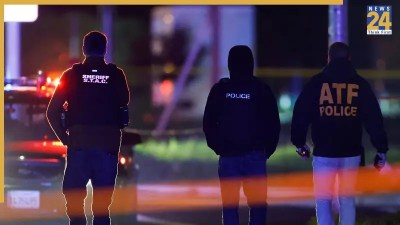New Delhi: On Monday, India voted to reject Russia’s request that the UN General Assembly (UNGA) take a secret vote on a draft resolution denouncing Moscow’s “attempted unlawful annexation” of four areas in Ukraine.
After Russia staged a referendum in Ukrainian territory, a public vote on Russia will now be taken this week at the UNGA.
The Ukrainian draft resolution that was being discussed at the UN General Assembly was to be voted on by secret ballot rather than by a public vote, but Russia flagged the proposal.
After Russia suggested a secret ballot for the resolution on Ukraine, Albania demanded an open vote. India supported a procedural vote that was requested by Albania.
At the UNGA, where votes are cast without veto power and 193 UN members participate, a resolution denouncing Russia’s annexation of four areas of Ukraine came up for consideration.
107 votes in suport of Albanian motion
There were 107 votes in support of the Albanian motion, 13 against it, and 39 abstentions. 24 nations, including China, Iran, and Russia, abstained.
The suggestion was rejected by an Albanian ambassador who said that “holding a secret ballot will weaken the practises of assembly.”
Prior to the voting, a fight broke out between Ukraine and Russia in the UNGA.
Over 84 missiles fire and 24 drones targeted citizens
First to speak at the emergency conference, Sergiy Kyslytsya, the Ukrainian envoy, lamented the loss of family members to Russian assault. He said that during the several strikes on Ukrainian cities on Monday, over 84 missiles and about two dozen drones intentionally targeted citizens and civilian facilities, including schools and colleges.
“The entire world has once again, seen the true face of the terrorist State that kills our people. Suffering defeats on the battlefield, Russia takes it out on the peaceful residents of Ukrainian cities,” he said.
Voting in favour of the draught resolution would be “a vote for justice” for “each country, for each of our citizens, for your families, and for our children,” according to the Ukrainian envoy.
UNSC rejected Moscow’s referenda
A similar UN Security Council resolution was rejected by Moscow a few days before to the resolution on the Russian annexation. In response to “so-called referendums,” the draught resolution denounces Russia’s “attempted unlawful annexations” of the four regions of Ukraine.
Vassily Nebenzya, the ambassador for Russia, said that the Albanian resolution, which announced that a recorded vote would take place after the discussion, had broken the norms of procedure.
He claimed that all parts of the Ukraine conflict that did not benefit Western powers had been discreetly ignored. Moreover, Russia had been denied the opportunity to speak its position.
He said, “Ukraine was chosen by these countries for that purpose, was brought under their control and today is a platform for the testing of NATO weaponry and for combat against Russia, using other people.”
Ukraine acted with impunity
In “sabotaging” Russia’s bridge to Crimea, he said, Ukraine committed a terrorist crime, and Russia could not watch helplessly while Ukraine acted “with impunity.” This vote was held after Russia launched massive attacks on Kyiv. The capital of Ukraine, and other sites on Monday, which attracted criticism from a number of nations.
Antonio Guterres, the head of the UN, expressed his horror and said that this was “yet another unjustifiable escalation” of the conflict.
The strikes, which apparently caused significant harm to residential areas and resulted in scores of fatalities and injuries, proved that, “like usual,” civilians were suffering the most as a result of Russia’s invasion on February 24.
Vladimir Putin issued harsh warning
In response to the Crimea bridge attack on Saturday, Russian President Vladimir Putin issued a “harsh” warning on Monday. Following the Crimea bridge explosion, Putin said during a televised interview that Russia had attacked infrastructure and military targets all throughout Ukraine.
He accused Kiev of “terrorism” and vowed more “severe” retaliation “according to the level of threat to the Russian Federation, make no question about that.”


